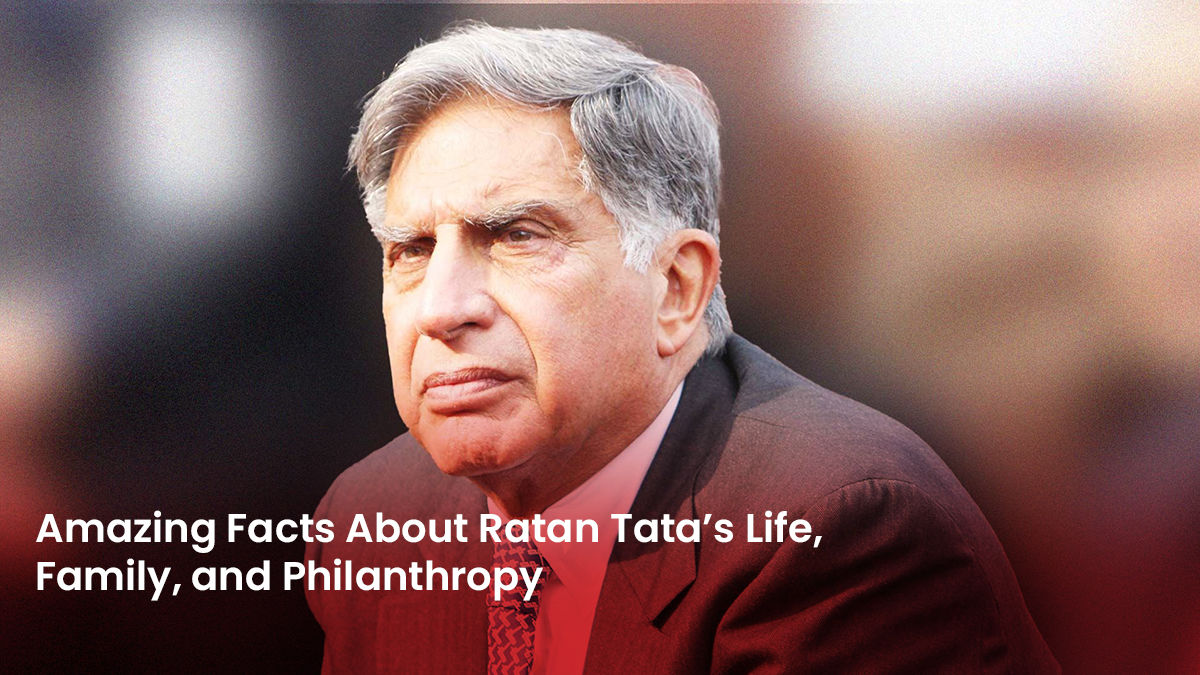You might have heard the term CEO various times, particularly when referring to large businesses and business owners. But do you know what CEO full form really is and why this role is so crucial?
CEO is the top job in a company, and the CEO makes important decisions that determine the future of the business. From developing business strategies to managing a group of employees, a CEO has a significant role in a company’s success.
In this blog, we will learn all about the CEO full form, its meaning, role, and responsibilities in the corporate world. So, let’s get started.
Who is the CEO of a company?
The CEO is the top leader of a company and they are responsible for making key decisions concerning the development, strategy, and direction of a company. The CEO collaborates with other top executives, employees, and shareholders to keep a business in top shape.
The CEO also represents the business outside, meets in meetings, and speaks to investors. Regardless of whether a company is large or small, an effective and strong CEO matters. He ensures that everything is going well and assists in growing the company.
A lot of the world’s top businesses, such as technology companies, banks, and start-ups, have excellent CEOs who lead their companies to success.
| CEO full form | Chief Executive Officer |
| Position | Highest-ranking executive in a company |
| Main role | Making key decisions, managing operations, and driving company growth |
| Responsibilities | Strategy planning, leadership, financial management, decision-making, and company representation |
| Who they report to | Board of Directors |
| Who reports to them | Other executives like CFO, CTO, COO, and department heads |
| Skills required | Leadership, decision-making, problem-solving, communication, and business strategy |
| Importance in a company | Guides the company’s direction and ensures long-term success |
| Examples of famous CEOs | Mark Zuckerberg (Meta), Elon Musk (Tesla, SpaceX), Sundar Pichai (Google) |
What is the full form of CEO?
The CEO full form in company is Chief Executive Officer. The CEO short form in corporation is Chief Executive Officer. The highest level role in a corporation. A CEO has the function of making vital business decisions, making objectives, and seeing to it that the company grows appropriately.
They manage the management group and interface often with employees, investors, and stakeholders. The CEO also portrays the corporation to others during meeting sessions, press releases, and in public occasions.
All businesses, either small or large, require a CEO to spearhead its day-to-day running and future ambitions. Their visionary leadership has much to do with the success of the company within the cutthroat business arena.
CEO’s function in a company
A Chief Executive Officer (CEO) is the highest executive who takes care of running a company’s entire operations. They formulate business objectives, strategy, and guide teams to facilitate growth. CEOs decide on matters related to finance, marketing, and expansion, keeping the company competitive and bringing it long-term success.
CEO’s position in government
In the public sector, a CEO oversees government organizations, municipal corporations, or public enterprises. The CEO full form in government refers to a Chief Executive Officer managing public sector organizations, government agencies, or municipal corporations. Theirs is to ensure effectiveness, uphold transparency, and enhance public services while engaging government officials closely to implement policies.
CEO’s influence in business
In a company, a CEO has the responsibility of innovation, revenue growth, and customer satisfaction. The full form of CEO in company is Chief Executive Officer, who has the responsibility of operating a company successfully. They are responsible for the company’s vision, resource management, and strategic decision-making. Their aim is to create strong market positioning, enhance profitability, and make the company responsive to changing business trends.
CEO’s leadership in education
In the education industry, a CEO heads schools, colleges, or universities, with a focus on quality education and efficient administration. The CEO full form in education is a Chief Executive Officer of schools, universities, or institutions of learning. They oversee faculty hiring, budgeting, and academic programs and work towards enhancing student experiences, updating teaching processes, and sustaining institutional excellence.
CEO’s impact in technology
In the IT and tech industry, CEOs lead innovation, product development, and cybersecurity efforts. The CEO full form in computer is associated with executives who manage technical teams and develop digital solutions to keep up with evolving technology trends.
CEO’s authority in banking
A CEO in the banking sector is responsible for financial stability, regulatory compliance, and customer service improvements. The full form of CEO in bank represents a leader who oversees lending policies, digital banking innovations, and financial strategies to maintain profitability and customer trust.
CEO’s command in defense
Leadership in the military is critical for national security and strategic planning. The CEO full form in army is associated with high-ranking officials who manage defense operations, military resources, and security policies. Their role is to strengthen national defense and ensure the country’s safety.
How to be a CEO of a company
To become a CEO, one must have a robust educational foundation, leadership abilities, and experience lasting years. Typically, CEOs begin by acquiring business-related degrees such as an MBA. Acquiring experience in the managerial department, developing strategic thought, and network building are primary steps.
Becoming a constant learner, master decision maker, and industry trends adapter are on the path to success. Industry experience, perseverance, vision, and the quality of leading the company to be successful are integral to reaching this pinnacle position.
Key responsibilities of a CEO
A CEO is tasked with defining the company’s vision, making strategic choices, and guaranteeing overall business success. They head the company by overseeing resources, managing financial performance, and directing teams. Their duty is significant in spearheading growth, managing risks, and acting as the company’s face to investors, stakeholders, and the public.
Major responsibilities include:
- Defining long-term business objectives and strategies
- Directing company finances and budgets
- Monitoring day-to-day operations
- Making top-level company decisions
- Ensuring legality and regulatory compliance
- Guiding the executive group and staff
- Building business partners and networks
- Crisis management and resolution
- Tracking the competition and trends in the marketplace
- Representing the organization externally and with investors
CEO salary in India
The CEO salary in India varies with firm size, industry, and experience. While the CEOs of start-ups might be paid between ₹10–₹50 lakh per annum, CEOs of blue-chip firms can draw crores. On top of salaries, CEOs have performance-based pay, stock options, and fringes such as travel allowances and luxury perks.
Average CEO salaries in India:
| Industry | Average salary (per year) |
| IT & Technology | ₹1 crore – ₹5 crore |
| Banking & Finance | ₹50 lakh – ₹3 crore |
| Healthcare | ₹40 lakh – ₹2 crore |
| Retail & FMCG | ₹30 lakh – ₹1.5 crore |
| Startups | ₹10 lakh – ₹50 lakh |
CEO salary in international countries
The salary of a CEO is quite different in various countries depending upon the scale of business, line of business, and the economic situation. In the United States, senior CEOs receive millions in base compensation, bonuses, and stock awards. Equally, senior CEOs in the UK, Canada, and Australia also get handsome salaries with benefits like sharing profits and managerial benefits.
- United States: Average salary of $150,000 to $10 million per year
- United Kingdom: CEOs earn between £100,000 to £5 million annually
- Canada: Salaries range from CAD 150,000 to CAD 3 million per year
- Australia: CEO earnings range from AUD 200,000 to AUD 4 million annually
- Germany: CEOs of top firms earn between €200,000 to €6 million annually
Skills required to become a CEO
It takes a combination of management, leadership, and problem-solving abilities to be a CEO. A successful CEO should have the ability to deal with financial decisions, business development, and organizational issues.
Key skills necessary are:
- Leadership skills: CEOs need to motivate and direct their teams in order to drive business objectives.
- Strategic thinking: Capacity to develop long-term business plans to drive growth and success.
- Financial skills: Ability to comprehend budgeting, investing, and finances of the company.
- Decision-making skills: Taking important business decisions under tight deadlines.
- Communication skills: Good public speaking, negotiation, and team coordination skills.
- Problem-solving: Finding issues and developing proper solutions.
- Flexibility: Adjusting to industry changes and market trends.
- Networking: Establishing relationships with business partners, investors, and stakeholders.
Educational qualifications for a CEO
While there is no fixed degree requirement to become a CEO, most successful CEOs have formal education in business or related fields. An MBA from a top business school often enhances leadership skills and career prospects.
| Qualification | Description |
| Bachelor’s degree | Business Administration, Finance, Management, or related fields |
| Master’s degree (MBA) | Enhances leadership, strategy, and financial knowledge |
| Industry-specific degrees | Engineering, Law, Medicine, or IT for specialized sectors |
| Certifications | Executive leadership programs, financial management courses |
| Experience & training | Years of work experience in leadership roles |
How a CEO is selected: the complete process
Choosing a CEO is a vital choice for any organization. It’s a process of finding a person with the proper skills, experience, and vision to lead the company forward. It’s an organized process involving the assessment of internal and external candidates, determination of leadership characteristics, and business goal alignment.
The board of directors or owners of the company typically manage this selection, keeping in mind strategic requirements and long-term development. The procedure may take months and typically includes several interviews, tests, and consultations before making the appointment.
Key factors considered in CEO selection
A CEO needs to be well-endowed with leadership skills, industry knowledge, and decision-making skills. Organizations seek candidates with a history of business achievement, crisis management skills, and problem-solving skills. Their strategic vision for the organization’s future and capacity to create a strong team also matter in the selection process.
Internal vs. external candidates
Some organizations like to promote an internal candidate who is familiar with the organization’s culture and operations. Others seek an external candidate with new ideas and a fresh perspective. Internal candidates have the benefit of company experience, while external candidates bring innovation and alternative industry knowledge.
Role of board of directors
The board of directors has a very important role to play in choosing the CEO. They determine the requirements, sift through applications, interview, and evaluate leadership skills. The final choice is made after considering the candidate’s strategic vision, business sense, and capacity to deliver company objectives.
Interview and evaluation process
Prospective CEOs undergo several rounds of questioning by board members and top executives. They can also be put to the test for leadership, crisis management, and decision-making through case studies or actual business situations. Background checks and reference checks are also done prior to selection.
Final appointment and transition
After selection, the CEO goes through a transition period during which they learn about company operations and develop relationships with key stakeholders. This period makes the transition into leadership seamless and lays the foundation for long-term success. The new CEO is formally presented to employees, investors, and the public.
Challenges in CEO selection
Selecting the right CEO is not always straightforward. Firms encounter a number of challenges in picking a leader who shares their vision and long-term aspirations. A significant challenge is identifying a candidate with the correct combination of experience, leadership capabilities, and knowledge of the industry.
Internal politics, stakeholder demands, and market volatility can also make it difficult. Also, if the company is under crisis, choosing a CEO that can manage stress and propel expansion becomes even more imperative. An inappropriate choice may have a detrimental effect on business performance, hence the need to make a rigorous assessment before coming to a decision.
Conclusion
The Chief Executive Officer(CEO ka full form) role is one of the most important positions in any organization. A CEO is responsible for making strategic decisions, managing operations, and leading the company toward success.
The selection process for a CEO is complex and requires careful evaluation of leadership skills, industry expertise, and business vision. Whether an internal promotion or an external hire, the right CEO can shape the future of a company.
Understanding the responsibilities, selection process, and challenges involved helps in recognizing the significance of this leadership role in any sector.

























